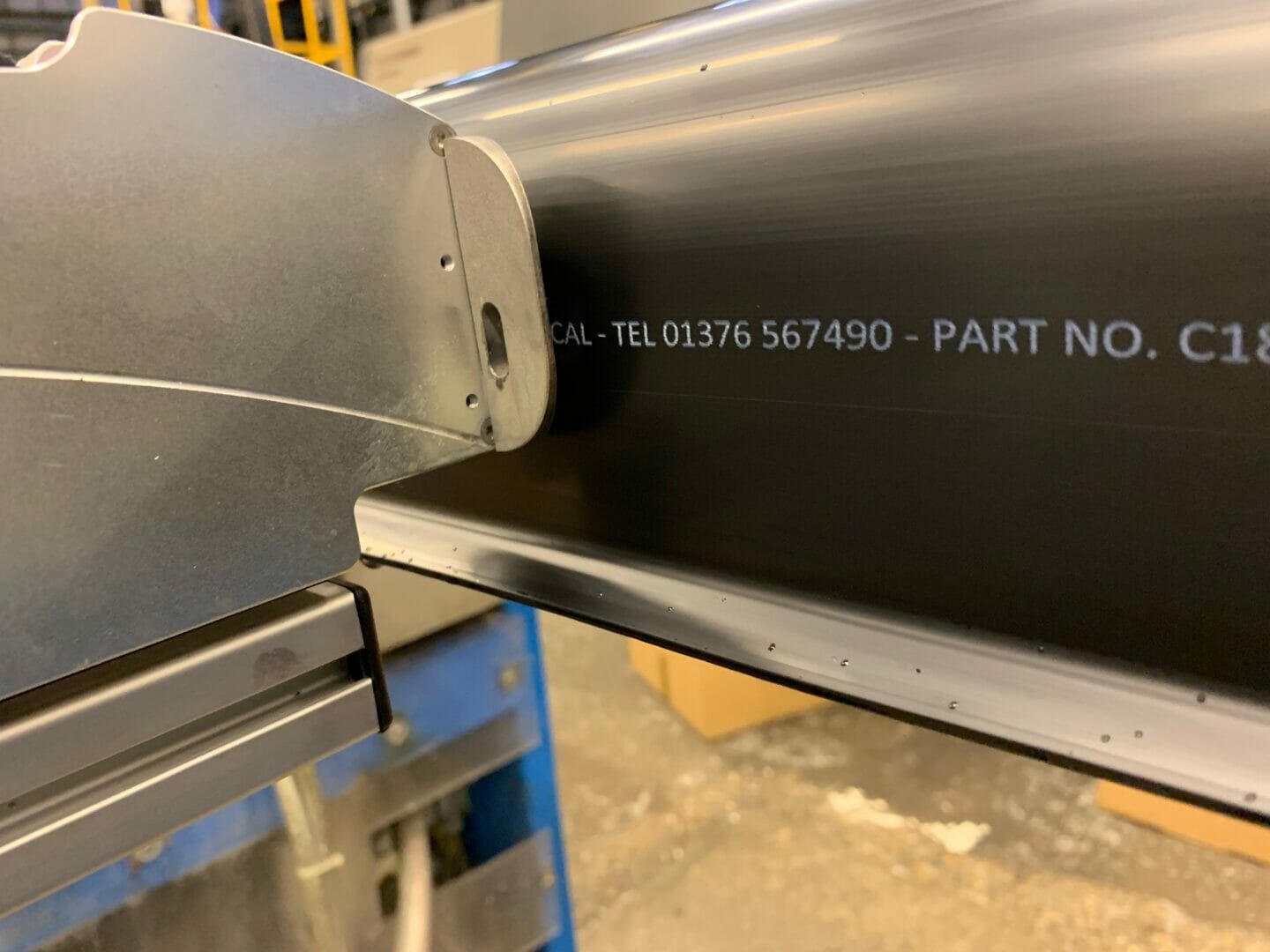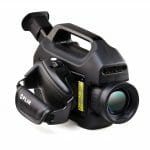Coding experts at Rotech have proved that it is possible to produce clear white and black codes, cost effectively on problematic HDPE surfaces through a project at UK plastic extrusions manufacturer Verplas. The economical and compact iJet TIJ (thermal inkjet) overprinter has enabled the Dorset-based extrusion and injection moulding company to enhance print quality and satisfy traceability requirements on major customer contracts.
Besides producing energy efficient ducting products for the ventilation market, Verplas, part of the worldwide Indutrade group, uses its extrusion and injection capabilities to design and mould bespoke plastic parts for customers. At present, major contracts include producing cable guards and inner reels for adhesive tapes. For traceability purposes, customers require each individual part to be coded with variable data such as date, production and batch codes as well as part numbers. Cable guards also have to be marked with the company’s name, address and phone number.
When, at the start of 2018, Verplas found out that the cartridges for its existing coder were soon to become obsolete, they began a search for a replacement machine. But finding a system that could code reliably without costing the earth was not straightforward.
“Both of these parts are extruded from HDPE which is notoriously difficult to print onto. It is a very waxy material, which makes it impossible for standard inks to adhere to without spending an awful lot of money,” says Martin Phillips, Technical Development Manager at Verplas.
He continues: “We looked at CIJ [continuous inkjet] but these printers are terribly expensive and need to be run continuously, otherwise the nozzles clog up. This didn’t suit our production pattern, as we only need to code once or twice a month, so instead we looked at TIJ. We approached several suppliers but none of them had any HDPE-compatible inks.”
Eventually, a recommendation led to Rotech, whose cartridge-based iJet series is compatible with ST-BLK and ST-WHT inks, enabling the creation of clear, indelible codes on HDPE.
Steve Ryan, UK sales manager at Rotech, explains: “White inks in particular are a problem as their aluminum oxide content makes them difficult to manipulate. However, advances have yielded alcohol-based ink formulations with the adhesive qualities necessary for coding on HDPE. Drawing on these developments, we have designed cartridges to work specifically with our TIJ systems. Each cartridge contains a chip, which is read by the printer when the cartridge is inserted. The printer then automatically self-adjusts its parameters to optimise performance for that particular formulation. This ability to configure the coder for different ink formulations makes a huge difference to performance, and our coders are unrivalled in the efficiency, reliability and quality they deliver.”
The iJet also outclasses the competition when it comes to compactness and ease of use. Steve says: “The iJet has just one additional PSU (power supply unit) and that is the size of a laptop. Everything else is contained within the printer itself, which is extremely lightweight. Operator interaction is also far superior to other printers in its class; users get an onboard LED display, a library that can store and instantly call up hundreds of products, intuitive ‘satnav’ style controls and network connectivity.”
Verplas trialled the unit and sent samples of the coded parts to customers to check that the codes could withstand their internal processes.
“The inner tape reels have to go through a washdown system and have adhesive applied to them, for example,” explains Martin.
The iJet passed the trial with flying colours; Martin reports that “the Rotech system produced a very high-quality code – far better than what we were getting with our previous coder – even for the more problematic white codes.”
TIJ is known for providing clarity of print; thermal print head technology provides exact drop placement, giving consistently clear and crisp codes, and 300dpi print quality is standard. As a cartridge-based technology, TIJ is also favoured for its cleanliness: in contrast to CIJ printers, TIJ printers do not require any bottles of inks or solvents, making them simple, clean and safe to use.
At Verplas, the iJet system is mounted on a frame, adjacent to the conveyor that transports parts from the outfeed of the extruder. The compact dimensions and ‘plug and play’ operation of the iJet were important features for Verplas, who wanted a system that could slot into their line and wouldn’t interfere with production on days where no coding is required.
“We use it as and when we want; there are no issues with ink drying up or clogging if we don’t use it for a while,” says Martin.
So far, Verplas has been highly impressed with both the iJet’s performance and the great value for money it offers.
“This wasn’t a large investment, so we have been pleasantly surprised by the difference the iJet has made to our operation. Our exacting quality standards – as evidenced by ISO 9001 accreditation – are one of the reasons customers choose to work with us, and traceability is a key part of this. With the iJet, we can be 100% confident that the traceability data customers have requested will be printed clearly, accurately and consistently,” says Martin.





